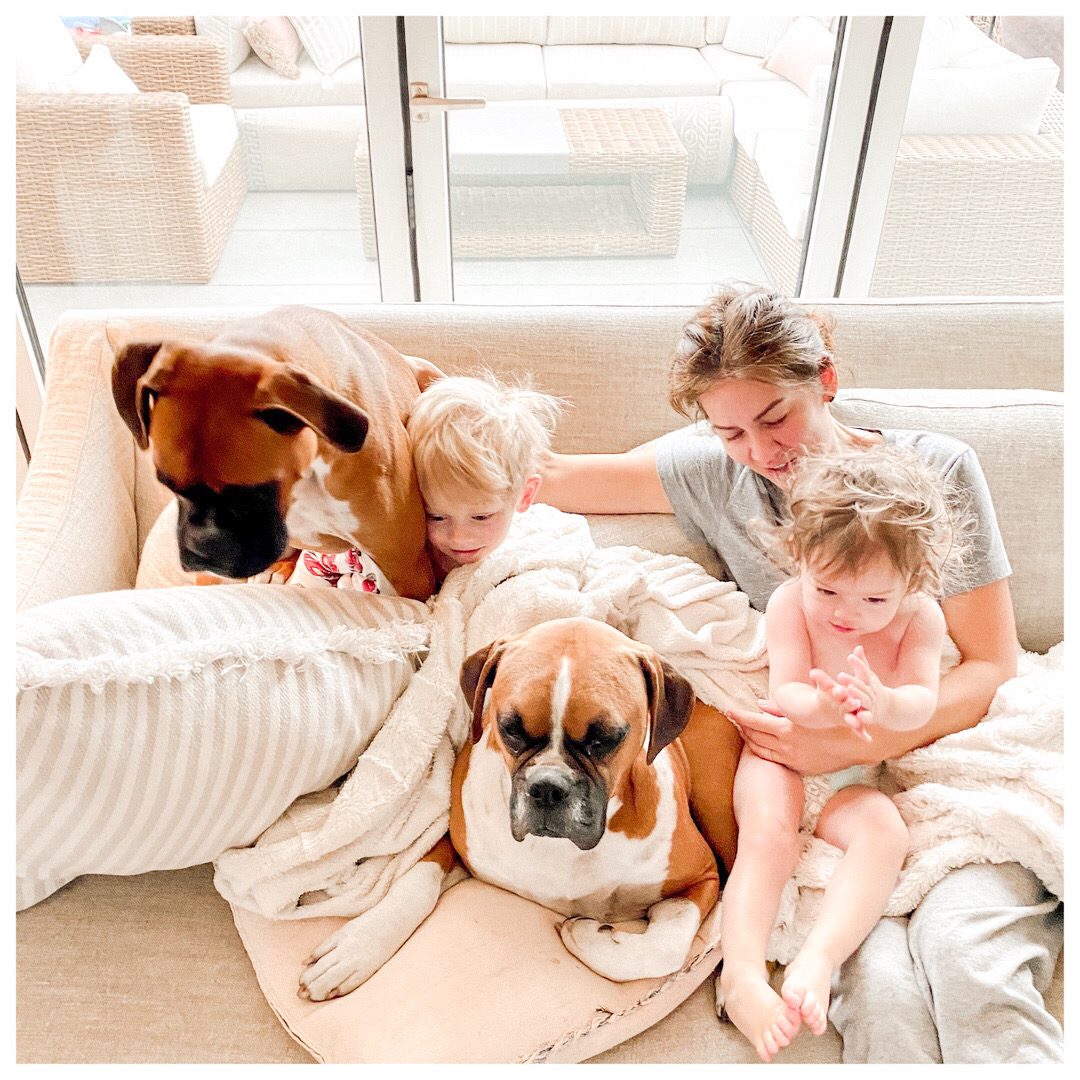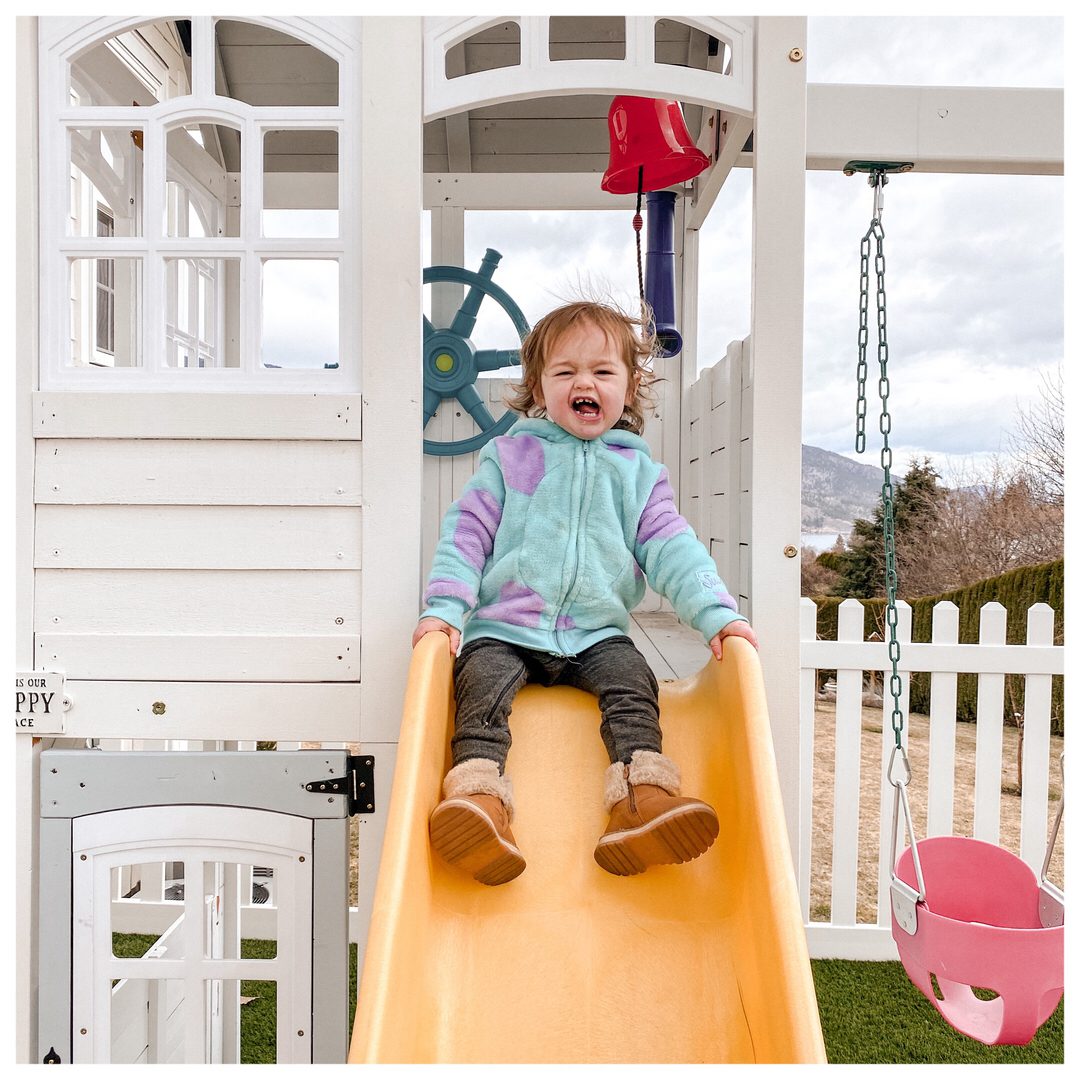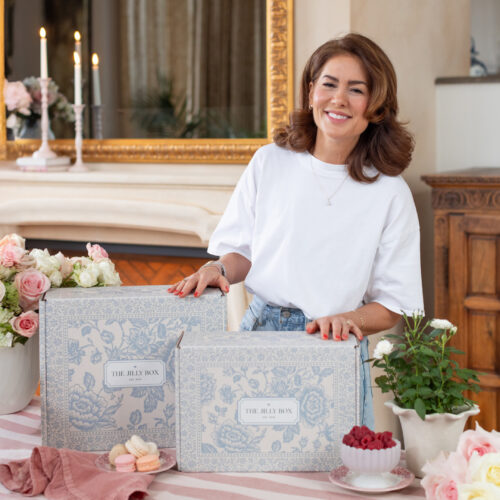Good morning everyone! I don’t know about you, but Leo and Annie have been attached to mine and Justin’s hip for the last month and a bit! Don’t get me wrong, I am LOVING this time that I am able to spend with them!! But I would be lying if I said I wasn’t worried about some separation anxiety setting in when everything starts to get back to normal (who knows when that will be)! This is why I am SO excited to welcome back today’s blog contributor, The Mama Coach. Carrie from their team is going to share some tips and tricks on how us mamas can work through separation anxiety in babies and young children!
Take it away Carrie!

Hi everyone, it’s Carrie here from The Mama Coach!
I had the pleasure of seeing Jillian at the beginning of March at an event. We spoke about what our next blog should be about and decided upon separation anxiety. The guilt every mama feels when her babies cry when she leaves! It is so hard and makes leaving them a challenge.
Fast forward 7 weeks, and here we are – home with our babies 24/7 (except the parents on the front lines and essential services – thank you!). Most of us are dreaming of what we will do when we get a single hot minute to ourselves. Of course, there are many wonderful moments with our families during this pandemic. We want you to know it is okay to feel all of the feelings – the good, bad, and ugly!
In time, this will pass, businesses will reopen and we will return to work. Once that change comes we can expect some separation anxiety to come with it. Likely will be heightened, as our babies routines have changed and they have become accustomed to being with mama all day long.
First off, separation anxiety is completely normal. All children experience it to some degree, as well as us as parents.
Around 8-9 months babies develop something called object permanence. This means that your baby is starting to realize that people and things exist even when they can’t see them. Ever have your baby cry when you leave the room? This is object permanence in action. The challenge is that your baby has no concept of time, so they cry for you as they don’t understand “when” you will be back.
Most children experience separation anxiety around 18-24 months of age. It can develop or worsen when you introduce a new sibling, move into a new home, and/or start a new job or routine. Separation anxiety can last merely a few months and even extend into the elementary school years. All of this depends on how you handle the concept as well as your child’s nature and personality.
Whether you are only folding laundry in the next room, dropping your littles off at daycare, or leaving them with a sitter – they may experience separation anxiety. Here are some tips on how to move through it with them.

1. Time your departure
Make sure your child is fed and rested before trying to leave. A tired and/or hungry baby is not as able to adapt to change or respond to mom leaving. Try to plan your departure for after a feed, during the nap, or right after the nap.
2. Practice
Even though you are most likely home all of the time now, try to schedule mini-breaks from your children. This is good for both of you! Encourage one on one time with your partner while you have a bubble bath or take a nap.
It is important to tell your child where you are going and when you will be back. Do they understand the clock concept – show them which hands will point whereupon your return. Set a timer that they can watch counting down.

3. Come back when you say you will
We want to build trust in what we say to our children so they understand that our word matters i.e. Mom said she would pick me up in one hour and she did. This helps eliminate fear within your child (mom is never coming back). This is exceptionally important to help minimize separation anxiety. If plans change, have someone let your child know i.e. something came up and you’re no longer able to do daycare pick up. Let the daycare staff know right away so they can notify your child and get them excited for Grandma doing pick up today. This will be much better for them and for Grandma, as your child won’t be bitterly disappointed that you aren’t there.
4. Goodbye Matters
Don’t sneak out. Instead, say goodbye formally to your child. We know leaving can feel hard for you too – children read our feelings and emotions from our face – try to be kind, firm, and excited for what your child gets to do while you are gone. Let your goodbyes be consistent (performing the same routine over and over allows children to know what to expect which helps to decrease their anxiety), and brief. If you let goodbyes linger on and on (because your child is upset), they will continue to be upset every time you leave in order to have more time with you.
5. Fill their bucket
Spend quality one on one time playing with your child before you leave (if possible). This can be hard if your mornings are hectic i.e. trying to get your child dressed and ready, loading them into the car for daycare, trying not to be late for work, etc. Set your alarm clock 30 minutes earlier in order to get yourself ready before waking your child. Having breakfast with them or playing a quick game or session of make-believe can help reduce the tears at drop off. The more securely your child feels attached to you, the easier it will be to leave them with someone else.
6. Have a point person
If you are dropping your child off at daycare, talk to the staff about the same person receiving your child every day. Consistency is huge for little people and going from one securely attached relationship to another will bring much more confidence and less protest.
7. Sleep matters
Resist keeping your little people up late to get your one on one time in. Remember that even 10 minutes of one on one time will make a huge difference to your relationship. Overtired children can’t regulate their emotions as well as because they have entered the “fight, flight, or freeze” response. Try to maintain a consistent bedtime and routine for your children.
8. Nutrition
As Dr. Jody Carrington says, you can’t rationalize with a flipped lid. When your children enter into an emotional response (such as the anxiety of you leaving them) they are nearly impossible to talk to. Food can be one of your tools. Bring snacks with you in the car on the way to daycare drop off. Eating helps put the lid back on for your children, which helps keep them emotionally regulated and can minimize their anxiety response.

Currently, we are all experiencing something new during this global pandemic and the impact it is having on our family life. Using these strategies every time you leave your babies will help decrease their anxiety response and set them up for success down the road. If you are looking for more parenting strategies to use during this time at home with your children, check out our eBook here. We have also put together an information book on current recommendations for managing COVID-19 that we will be updating regularly – click here to check it out.
Once the threat of COVID-19 passes and we are able to venture out into the world again, it will feel new for all of us. Give yourself grace as you move through adjusting back into your new routine. It will take time for all of you to adjust to a new way of being in the world. We are here to virtually support you – please reach out if you need anything. You got this, mama.
xo





Love Dr. Jody Carrington! Great article!
It made sense when you said that a hungry or tired baby is less likely to adapt to change well. I need to find a daycare for my daughter to start this spring when I return to work. Following your advice should help our adjustment to daycare go as smoothly as possible, so thanks for sharing!